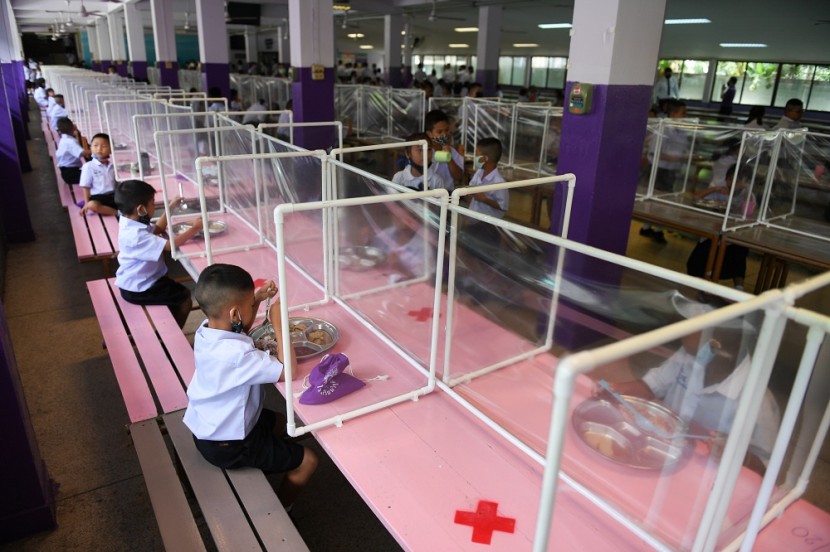
In Bangkok, the structures, services, and air quality have seen progress. People would greet each other after the imposed quarantine as they take off their face masks, allowed to be hugging and kissing again.
Thailand has not recorded confirmed cases of COVID-19 for the last 36 consecutive days. The registered cases only include Thai citizens returning from international travel.
Measures in which Thailand can safely permit the comeback of tourists are being evaluated. Among the ideas is the concept of "travel bubbles" which would implement travel arrangements with other nations that have mitigates the novel coronavirus situation, reported Xinhuanet.
As of June, 2 confirmed coronavirus cases were recorded in Thailand, according to the government on Tuesday. The total number of confirmed cases in the country has been tallied to 3,171. Fatalities stand at 58 as no additional deaths were confirmed, according to Bangkok Post.
From December 2019, Thailand had transitioned from a traveler's hotspot to one of the COVID-19 hot zones with deserted tourist destinations and diminished tourism that the country heavily relied on, reported BucketListly Blog.
On June 30, Thailand's government kept the nation under a state of COVID-19 emergency until the 31st of July.
It marked the 3rd extension of the imposed decree. The state of emergency was initially imposed from March 26 to April 30.
Thailand's Center for COVID-19 Situation Administration (CCSA) has agreed to gradually reopen the nation's borders initially for 6 clusters of foreigners and citizens from South Korea, Japan, Singapore, China, and Hong Kong.
According to CCSA spokesperson Dr. Taweesin Visanuyothin, initially, the total of foreigners to be permitted to enter Thailand will be assigned at 200 per day. The foreigners should go through a 14-day quarantine period at an alternative state quarantine (ASQ).
The World Bank concluded that the duration for Thailand to return to its pre-COVID-19 real growth level is at least two years, which stood at a low level of 2.8% in 2019.
The coronavirus pandemic is imminent to inflate the ranks of the country's poor, with the urban-based middle class affected the hardest.
Now, upon entering an establishment in Thailand, a citizen's temperature would be taken, be ordered to register in COVID-19 apps and be sanitized by hand gels.
The kingdom's positive cases from repatriates entering from abroad are now in the state quarantine facilities.
"The absence of foreign tourists means business is still very slow," according to Rada, owner of a massage parlor.
Also, with the absence of foreign tourists, tourism paradises including Phuket and Pattaya have been more negatively affected than Bangkok.
On June 15, the curfew was lifted on the path to the "new normal."
The "normal" that Thai citizens are accustomed to know will not return soon.
The reopening of tourism destinations, schools, domestic travels, and entertainment places are merely for local citizens and foreign workers who did not leave Thailand amid the quarantine.
Thailand's economy would have a 5.1% fall for 2020 compared to its initial tally of 4.2%.
Related Article : Can Salt Water Gargling and Nasal Rinsing Work as Coronavirus Cure








